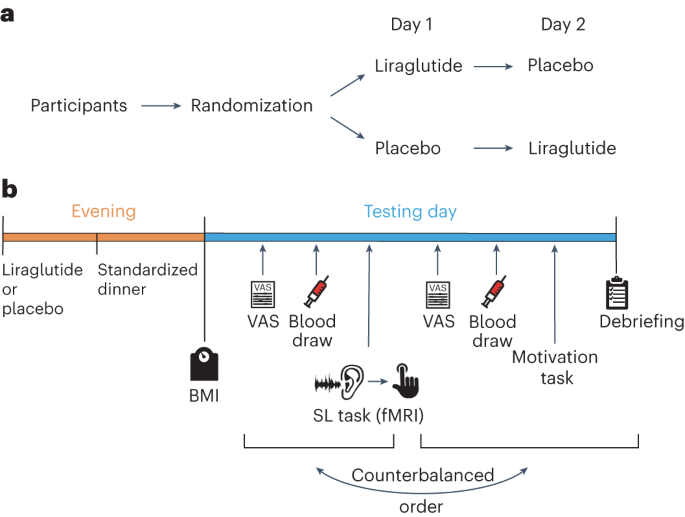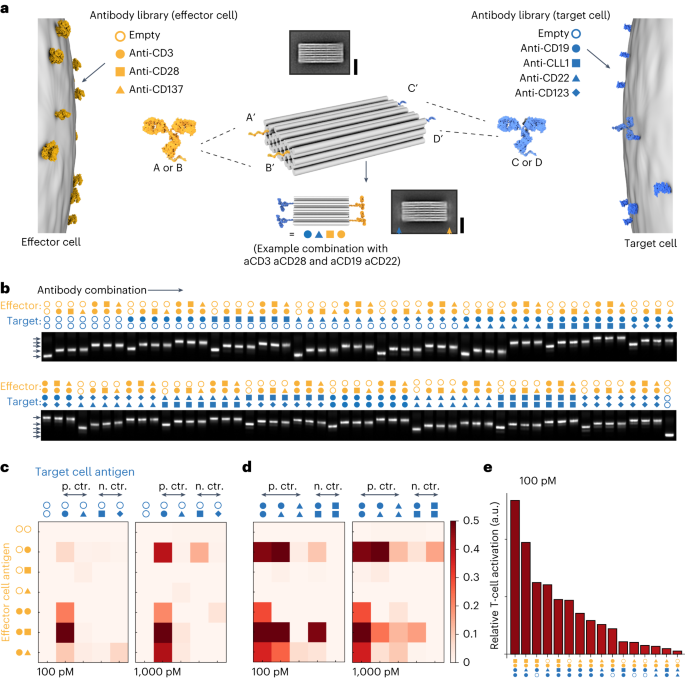2023-08-17 マックス・プランク研究所
◆この薬物は体内信号分子を活性化し、インスリン産生と満腹感を促進するGLP-1受容体アゴニストです。抗肥満薬の使用は体重減少だけでなく、学習能力の向上にも寄与することが示唆されています。
<関連情報>
- https://www.mpg.de/20745738/0815-neur-anti-obesity-drug-improves-associative-learning-in-people-with-obesity-153735-x?c=2249
- https://www.nature.com/articles/s42255-023-00859-y
リラグルチドは肥満症患者において障害された連合学習を回復させる Liraglutide restores impaired associative learning in individuals with obesity
Ruth Hanssen,Lionel Rigoux,Bojana Kuzmanovic,Sandra Iglesias,Alina C. Kretschmer,Marc Schlamann,Kerstin Albus,Sharmili Edwin Thanarajah,Tamara Sitnikow,Corina Melzer,Oliver A. Cornely,Jens C. Brüning & Marc Tittgemeyer
Nature Metabolism Published:17 August 2023
DOI:https://doi.org/10.1038/s42255-023-00859-y

Abstract
Survival under selective pressure is driven by the ability of our brain to use sensory information to our advantage to control physiological needs. To that end, neural circuits receive and integrate external environmental cues and internal metabolic signals to form learned sensory associations, consequently motivating and adapting our behaviour. The dopaminergic midbrain plays a crucial role in learning adaptive behaviour and is particularly sensitive to peripheral metabolic signals, including intestinal peptides, such as glucagon-like peptide 1 (GLP-1). In a single-blinded, randomized, controlled, crossover basic human functional magnetic resonance imaging study relying on a computational model of the adaptive learning process underlying behavioural responses, we show that adaptive learning is reduced when metabolic sensing is impaired in obesity, as indexed by reduced insulin sensitivity (participants: N = 30 with normal insulin sensitivity; N = 24 with impaired insulin sensitivity). Treatment with the GLP-1 receptor agonist liraglutide normalizes impaired learning of sensory associations in men and women with obesity. Collectively, our findings reveal that GLP-1 receptor activation modulates associative learning in people with obesity via its central effects within the mesoaccumbens pathway. These findings provide evidence for how metabolic signals can act as neuromodulators to adapt our behaviour to our body’s internal state and how GLP-1 receptor agonists work in clinics.


